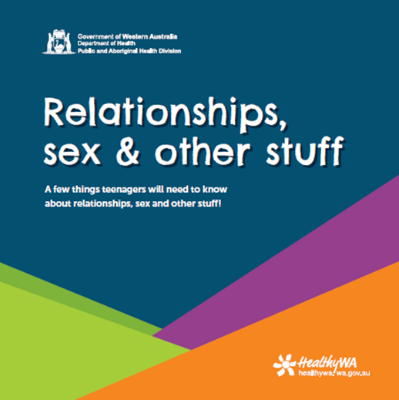Relationships, sex and other stuff

Department of Health 'Relationships, sex & other stuff' booklet
From the moment you are born, you have different kinds of relationships and connections with those around you – parents, siblings, friends, aunts, uncles, grandparents, teachers and role models. As you get older, the kinds of relationships you have may include romantic and/or sexual partners. The depth of your connection with others may vary and evolve over time, but one constant remains – the importance of mutual respect, both in giving it and receiving it.
It can be helpful to have an adult to talk to about this information too. So, think of some of the adults in your life that you can trust and feel comfortable with – this might be a parent, a family member, a teacher, a school nurse or your doctor. They can help answer questions you might have, point you in the direction for reliable information and services, be a listening ear and support you along the way.
Read or download the Relationships, sex and other stuff booklet (PDF 2.6KB).
This booklet includes a heap of information so that teenagers can read up on the important stuff as they navigate the road to becoming an adult.
If you are a parent of carer, who would like to order one copy of the Relationships, Sex and Other Stuff booklet, please email shbbvp@health.wa.gov.au.
If you are a health professional, school or service who would like to order bulk copies, please go to the https://doh.getquickmail.com/ and sign up to order copies of the Relationships, Sex and Other Stuff booklet and any other Department of Health resources.
Where to get help
Last reviewed: 18-08-2025
Acknowledgements
Public Health
This publication is provided for education and information purposes only. It is not a substitute for professional medical care. Information about a therapy, service, product or treatment does not imply endorsement and is not intended to replace advice from your healthcare professional. Readers should note that over time currency and completeness of the information may change. All users should seek advice from a qualified healthcare professional for a diagnosis and answers to their medical questions.